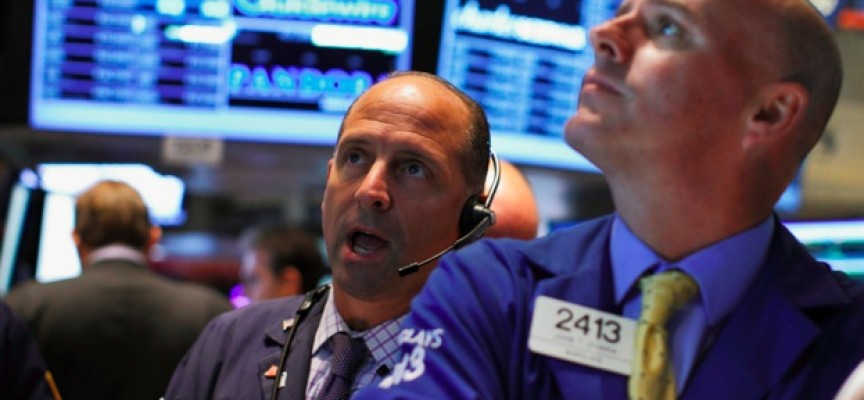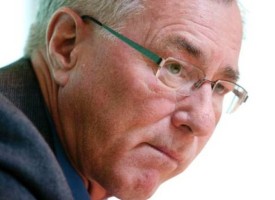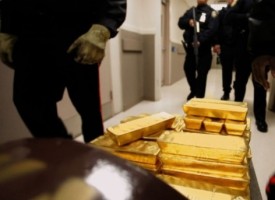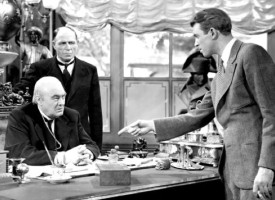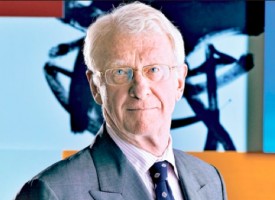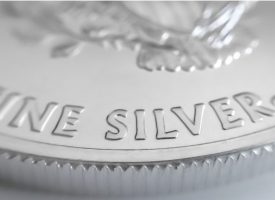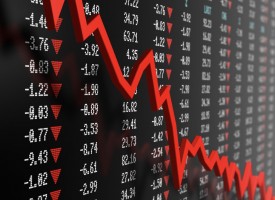With stocks soaring and the U.S. dollar surging, below are key portions from two incredibly important interviews. But first, here is a quote from one of the greatest and most legendary value investors in Wall Street history.
"It's not whether you're right or wrong that's important, but how much money you make when you're right and how much you lose when you're wrong." — Stanley Druckenmiller
The following piece by Art Cashin includes portions of two incredibly important interviews.
By Art Cashin Director of Floor Operations at UBS
January 8 (King World News) – The Other Interview – In addition to his Barrons interview, Jeff Gundlach had a longer interview with "Finanz und Wirtschaft". It was equally downbeat and insightful. Here's a bit that I found particularly interesting:
Is the U.S. economy not strong enough for a moderate raise of interest rates? For instance, the unemployment rate is already down at 5.8% and closes in on the 5.2 to 5.5% range which is considered as maximum employment.
It is really a mistake to compare today’s unemployment rate to what would have been an unemployment rate around 6% roughly twenty years ago. Today, there is a great shift towards part time employment. For example Wal-Mart is very visible in this regard. They intentionally hire people for less than 26 hours a week to avoid Obamacare. Well, that means that what used to be three jobs is now five jobs.
There is not more money into the economy. Also, what you have is employment growth for people who are over 55. Why is that? They cannot retire because interest rates are at zero. With interest rates at zero an infinite amount of money earns zero, let alone a finite amount of money like $300’000 or $800’000 or whatever the particular individual has saved. There is no chance that they can live off of that. Therefore, what many older people do is they work. But there is very little movement regarding young people. So it seems like the Fed, for reasons that are philosophical rather than fundamental, may raise interest rates.
What do you mean by that?
I think they are just nervous about zero interest rate policy going on this long and not having tools to fight any future weakness in the economy. What the Fed wants to do is get off of zero so at least they have the ability to ease down the line. But fundamentally, there is very little reason why they should raise interest rates. The price of oil dropping to $55 a barrel is a very strong sign that there will be perhaps no inflation at all in the United States. The only places where there is inflation is in places that are painful. It is in shelter and in food but not in wages which would help parts of the society. Raising interest rates against that backdrop seems like a poor idea. So I just hope the Fed thinks carefully about what it is doing.
He went on to project that if oil fell to $40, the yield on the ten year could dip to 1%. Lots more good stuff. Pull it up if you can.
More From Mr. Gundlach – Here are a few more excerpts from Jeff Gundlach's interview with Finanz and Wirtschaft:
So far the stock market is still holding up. It got a little bit bumpy in October and in the last few weeks but the Fed did get out of QE3 without significant troubles.
They have not fully gotten out of QE, they are still reinvesting. Also, I suspect that raising rates would be a bigger deal than just reducing bond buying. That is because buying bonds was easy to replace. The amount of bonds the Fed used to buy was taken over by foreigners in China and Europe because of the yield differential and because there was not a lot of fear of being in the Dollar. But raising rates is different. You cannot really replace that. You cannot suddenly have some other entity lending to you at zero. So I think it will change people’s behavior and it will really start to cause volatility in the currency market.
On the other hand, investors are expecting the ECB to ease monetary policy in Europe further and to start its own QE program.
In Europe, there have been three years now of lack of concern. In Italy, ten year government bonds are yielding less than 2%. In Spain it is 1.7%, in France 0.9% and in Germany 0.6%. So it is not Japan that sticks out anymore. The outlier is actually the United States with 2,2% on the ten year treasuries. Yields in the US are too high. I do not know why anybody in France owns French bonds. You can more than double your income by buying U.S. bonds – and the Dollar is heading higher. So no wonder bond yields in the U.S. have a hard time retracing to higher levels because it is a relative value play. Sadly, in today’s world of developed bonds 2.2% represents value.
What happens if ECB chief Mario Draghi does not deliver?
Mario Draghi talks a lot and I think the market gets tired of the talk. What seems to be happening is Draghi fatigue in terms of the market being willing to simply accept words. There is probably going to be a test of Draghi’s promises and it will be interesting to see whether he is able to pull it off or not. Also, you are seeing things change. For instance, the anti-Euro parties seem to be polling better in Greece and Italy and even in France.
Cashin closed out today's piece with the following notes: We believe the shootings in France yesterday will move elections all through Europe and inspire a strong xenophobic undertone. That could present new problems for the EU.
Consensus – The market bounce-back appears to be in full bloom as oil leans toward stability. Futures look like the indices may all move back above their respective 50 day moving averages.
Let's enjoy the glow but always stay wary, alert, and very, very nimble.
****UPDATE – KWN readers need to update the bookmarks of the King World News home page to www.kingworldnews.com
© 2015 by King World News®. All Rights Reserved. This material may not be published, broadcast, rewritten, or redistributed. However, linking directly to the blog page is permitted and encouraged.
The audio interviews with Michael Pento, Bill Fleckenstein, David Stockman, Dr. Philippa Malmgren, Egon von Greyerz, Dr. Paul Craig Roberts, Stephen Leeb, Andrew Maguire, John Embry, Gerald Celente, Rick Rule, William Kaye, Rick Santelli, John Mauldin and Marc Faber are available now. Other recent KWN interviews include Jim Grant and Felix Zulauf — to listen CLICK HERE.

